When ES Magazine met Anna Delvey: 'There were times I was not sorry'
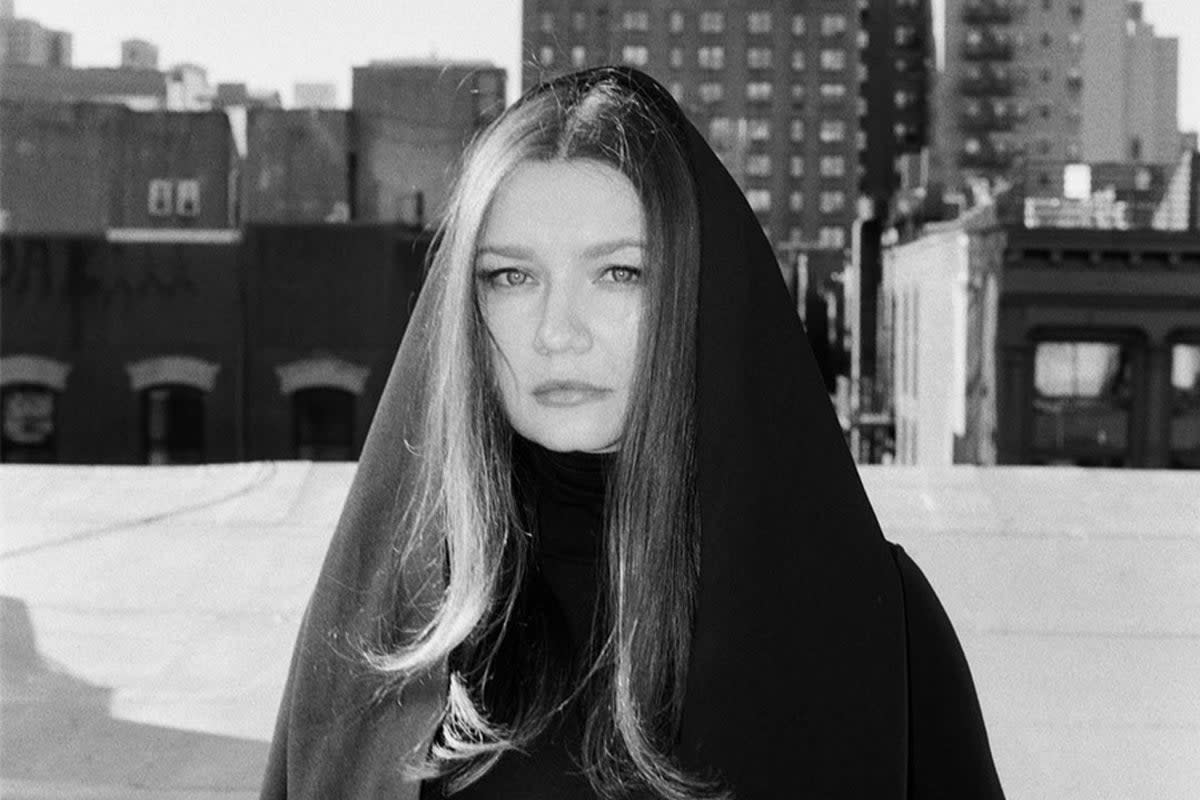
This interview was originally published on 25 Oct 2022
On a crisp Sunday morning in New York, Anna Delvey is showing me her prison ankle tag, which is… well, you can see it here, below. She does her best model pout and turns to the left and the right. ‘I want to customise it,’ she says. ‘But I need to do it in a way that can go with every outfit.’ She laughs — but I am not sure if she is joking.
After five years in and out of prisons and detention centres, the 31-year-old was released earlier this month. Delvey, better known as the fake heiress who conned New York’s elite out of hundreds of thou - sands of dollars, is still under house arrest but she is allowed visitors — and on her first day home, she used her new freedom to pose for a magazine photo shoot. She swoons over the clothes she wore: a yellow vintage Hermès dress and a Christian Cowan coat in her favourite colour, black. Owned by a client of her lawyer, her new apartment is in the East Village. The walls are bare but she has been buying cushions online to make it feel like home. Despite still getting a kick out of shopping, she insists that she has turned over a new leaf. ‘It took me a while to realise what I had done,’ she says. ‘I can’t change what happened but I did make some bad choices and hurt people. I’ve changed in every possible way after prison. I saw what people in the real world have to go through. Now I want to use the attention I have to make a difference. I want to prove I am not this awful, cunning person.’
At this point, I remind myself not to take everything Delvey takes at face value. She is easy to like, with a heart-shaped face and large, black, plastic-framed glasses. She is wearing an oversized, black Acne hoodie that makes her look like a teenager. But she is not to be underestimated — as documented by her case and, of course, Inventing Anna.
Delvey arrived in Manhattan in 2013 and charmed the art and fashion world, posing as a Gatsbyesque German heiress with plans to open The Anna Delvey Foundation, a private members’ arts club to compete with Soho House. On Instagram, she documented a glitzy safari of parties, fashion shows and trips on private jets. She splurged on outfits from Net-a-Porter, $400 eyelash extensions and cryotherapy, and she tipped lavishly, which made it less suspicious when she couldn’t pay the bills for dinner or needed a loan for her business. Her lies unravelled in 2017 when she was caught with unpaid hotel bills. Delvey, it turned out, was a creation; the real woman was Anna Sorokin, the Russian-born daughter of a former truck driver who emigrated to Germany, with a gift for getting other people to fork out for what she wanted.
A trial in 2019 found that she had scammed her friends, hotels and banks out of $275,000 (£275,000) and she was sentenced to four to 12 years in jail. In February last year she was released for good behaviour, only to be arrested again six weeks later for having overstayed her visa. Since then she has been in an immigration detention centre, fighting deportation to Germany, where her parents and younger brother live (they speak regularly: ‘Nothing I’m doing now is illegal or embarrassing so they should be supportive. But I want to stay in New York, I like the vibe’).
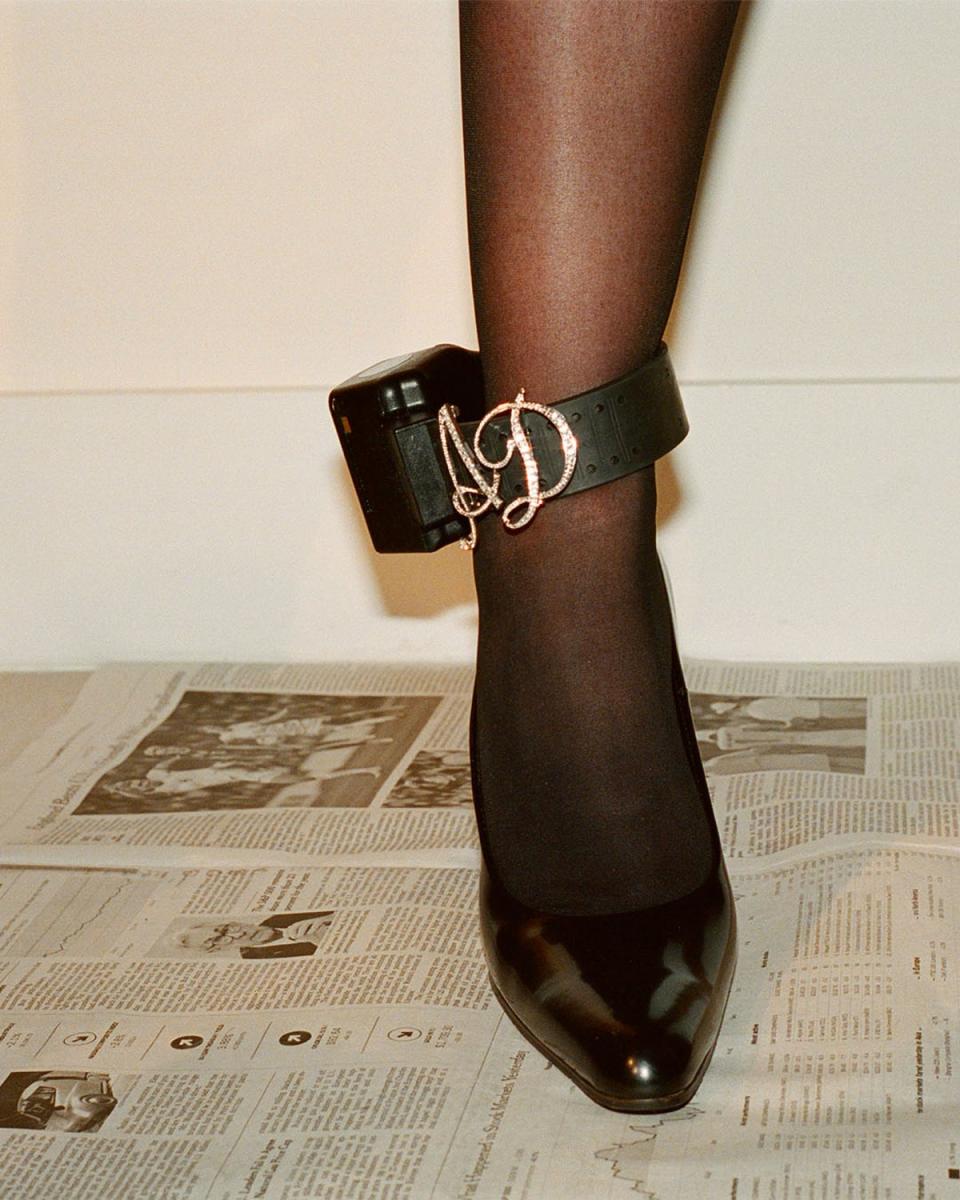
I’m not even sure which surname she prefers. ‘It makes no difference,’ she says, although she uses Delvey on her Zoom account. ‘I should probably decide on one.’ She laughs, as she does often, using humour to deflect attention. It took a while for what she had done to sink in. ‘There were times when I was not sorry,’ she says, in an accent that sounds more American than the one Julia Garner put on for the series (Delvey says that was an accent ‘from when I was travelling a lot, now everyone says it is not as strong’). She has to choose her words carefully when it comes to her case as she is appealing. ‘Just because I didn’t go on national television and cry it doesn’t mean I didn’t suffer. I do have regrets. I wish I had an opportunity to go back and not hurt and disappoint all those people. My biggest mistake was that I had tunnel vision wanting to set up my foundation. I’ve been under pressure to deliver and I made reckless decisions, pushing people to get things done by any means necessary.’ She is beginning to sound like the short-lived PM Liz Truss, whose most used word has been ‘deliver’.
Still, Delvey is not the type to be consumed by regret. ‘Regret is looking back and not accepting who you are today,’ she says, turning philosophical. ‘Everything happened for a reason. It is not like I can go back and change it. Mistakes are okay. I’m trying to fix this narrative and use the attention for something better, to work on criminal justice and immigration reform.’
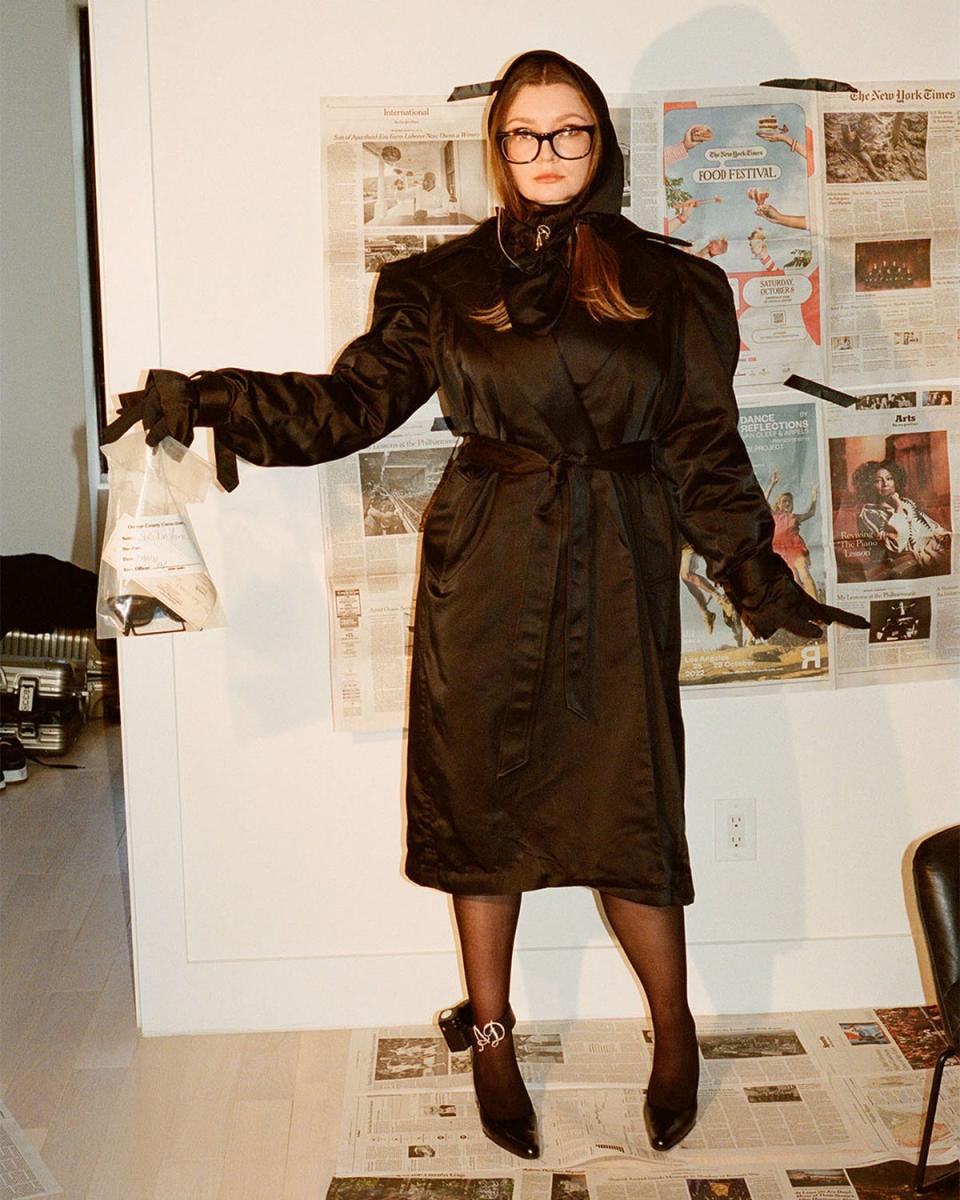
Before we can get into that, the doorbell rings. Delvey has ordered an açaí bowl and a green juice from an Australian café and walks down five flights of stairs to pick it up, admiring the delivery man’s sausage dog. Ordering food is a novelty. Delvey is a vegetarian, which in prison meant ‘bread, rice and cake every day — I had to do lots of workouts in the yard’.
She shows me the ankle tag she has to wear and jokes about how she wants to customise it: ‘I need to do it in a way that can go with every outfit.’ Her nails are painted a dusky pink. ‘It’s Dolce & Gabbana,’ she says. ‘I like nude tones.’
The only person she is in touch with from her old life is Neffatari Davis, a concierge at one of the hotels where she stayed. ‘I don’t have time for the others,’ says Delvey. Davis worked on the Netflix series and has said she feels bad for Delvey as she ‘has no one in America’. Delvey seems unbothered; she has other friends, including the actress and past ES cover star Julia Fox (‘we text; she has been vocal about her break-up with Kanye’).
Just because I didn’t go on national television and cry doesn’t mean I didn’t suffer
Inventing Anna tried to explain why so many people fell for Delvey’s lies. It is the same impulse at play in other scam-dram true crime shows, from The Tinder Swindler to The Dropout, about Elizabeth Holmes: wanting to believe in something better than reality. ‘A lot of people see what they want to see,’ explains Delvey.
She shows me the pencil drawings she made in prison. One is just the words ‘not guilty’ repeated. ‘That’s inspired by the words on the mirror in The Shining,’ she says. Another shows her as a doll, with the heading ‘Creating Anna’. ‘You don’t want to reveal your true self to everybody all the time,’ she says. ‘Everybody puts on a face to protect themselves from the outside world. That doesn’t mean you are deceptive.’
On the day she was arrested, she thought she was going for lunch with a friend, Rachel DeLoache Williams. Williams, who was then a picture researcher at Vanity Fair, paid for a $7,000-a-night riad in Morocco they had stayed in and then called the police. ‘I would have got arrested with or without Rachel, she doesn’t deserve the credit for that,’ she tells me. ‘What was hard was not knowing what was going to happen in the days after my arrest. They took my phone and I didn’t remember anybody’s number. Now I know all the numbers I need by heart.’
She spent 19 months in Rikers Island jail, where former inmates include Harvey Weinstein and John Lennon’s killer, Mark Chapman. Drugs were rife, even more so than on the New York party scene, often hidden inside the prisoners’ vaginas. Did she take any? ‘No, I’m not into drugs. Plus, you never know what you are getting.’ Some prisoners made romantic advances towards her: ‘Some are lesbians, others just crave connection. But it’s not my thing.
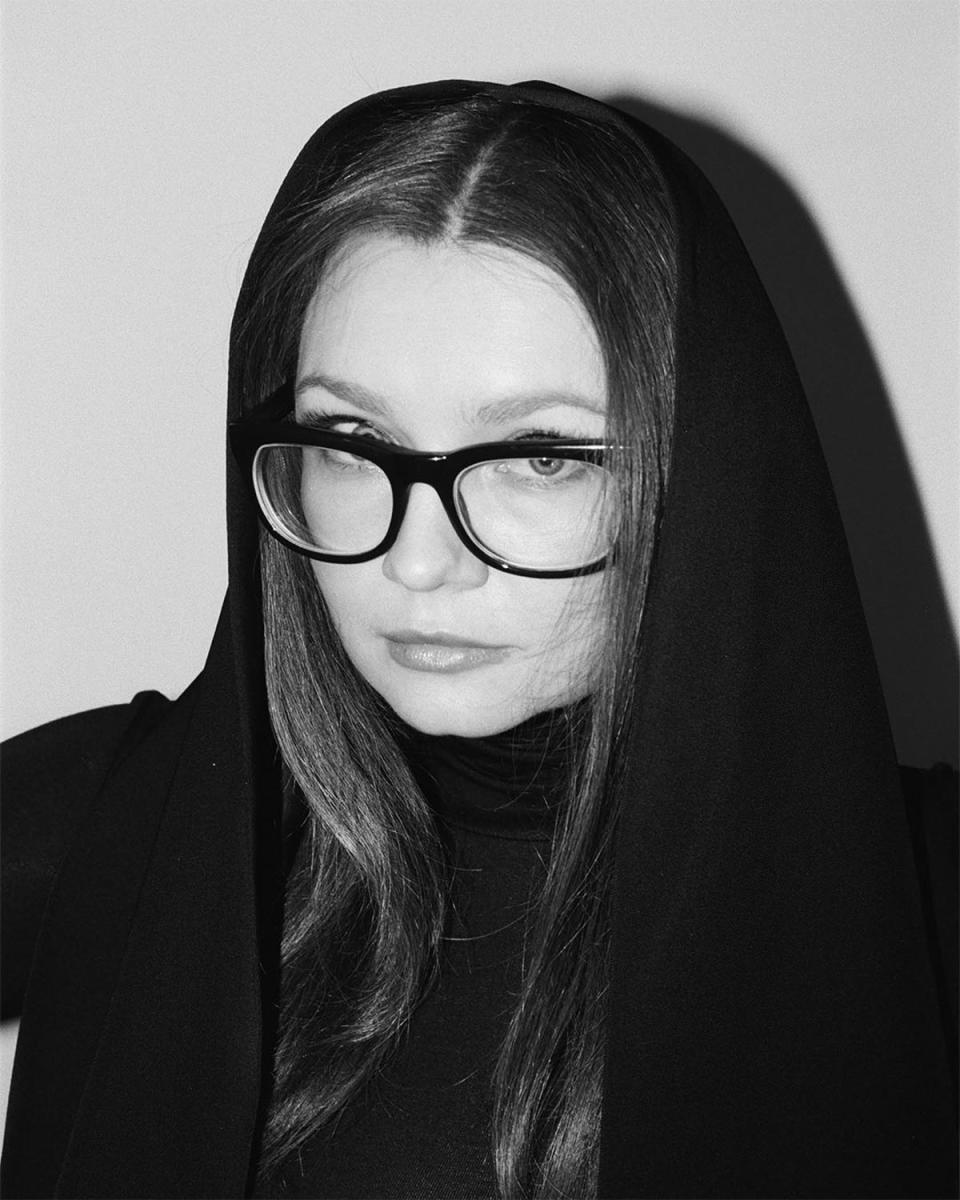
‘When I met people I just said I was accused of stealing money and no one asked questions,’ she continues. ‘Some guards assumed I thought I was better than the others because they had read about my case so chose to enforce petty rules; I’d fold my trousers because they are flared and if you fold the bottom they look like they are skinny. I had to make something of nothing. Some guards told me off. Others were supportive — it’s like the real world.’
At Rikers, she was always surrounded by other prisoners, even sleeping in a dorm. Apart from the occasional cat fight, she says ‘that helped’. ‘You don’t have time to deal with your own feelings because you are constantly with people. But it is pretty depressing. It’s that uncertainty that’s devastating. I mean it’s nice that I had a Netflix special but what good does that do if I’m in prison?’
I am a young female and often stories like that are about men. It was a perfect storm; there’s a fascination with true crime, it happened in New York against a background of art and fashion
Eight months into her time at Rikers, Netflix paid Delvey $320,000 for the rights to her story, which ‘has all gone on lawyers and restitution’. The drama portrayed Delvey as a sociopath, with a cruel streak and a vicious sense of humour. At one point she asks a journalist: ‘Are you pregnant or are you just so very, very fat?’ She could only bear to watch half an hour, on the jail video app. ‘It was hard to watch but it’s entertainment — no one is claiming it is all real.’
Why does she think so many people were gripped by her story? She looks thoughtful. ‘I am a young female and often stories like that are about men. It was a perfect storm; there’s a fascination with true crime, it happened in New York against a background of art and fashion. If it happened anywhere else people would have cared less, right?’
She says she has enough money to get by. ‘I have multiple streams of income,’ she says. ‘I’m selling my art.’ If her recent online shops are any - thing to go by, she must be. ‘I have orders coming in from Net-a-Porter, MyTheresa, FarFetch, Nordstrom. I like The Row.’ I tell her I wish I could afford The Row and she laughs again.
New York Magazine has offered her a column, she says, and she is planning an interview podcast, talking to people from ‘all areas. I’ve had my hand in everything, for better or worse and I’ve been interviewed a lot — so many journalists interrupt all the time.’ She would like to run her own company, too. ‘I define myself by working, work is fun. I could never be happy just being a housewife.’ And then there’s her social justice mission. ‘I’m excited for that. Change needs to be systematic. We need more judges. There are only 50 courts in the country so immigration cases take a long time. In the meantime, people are sent to prison, they can’t work, it’s embarrassing, they could lose their children. So many people take on this cause because it is trendy but I actually have experience of it.’
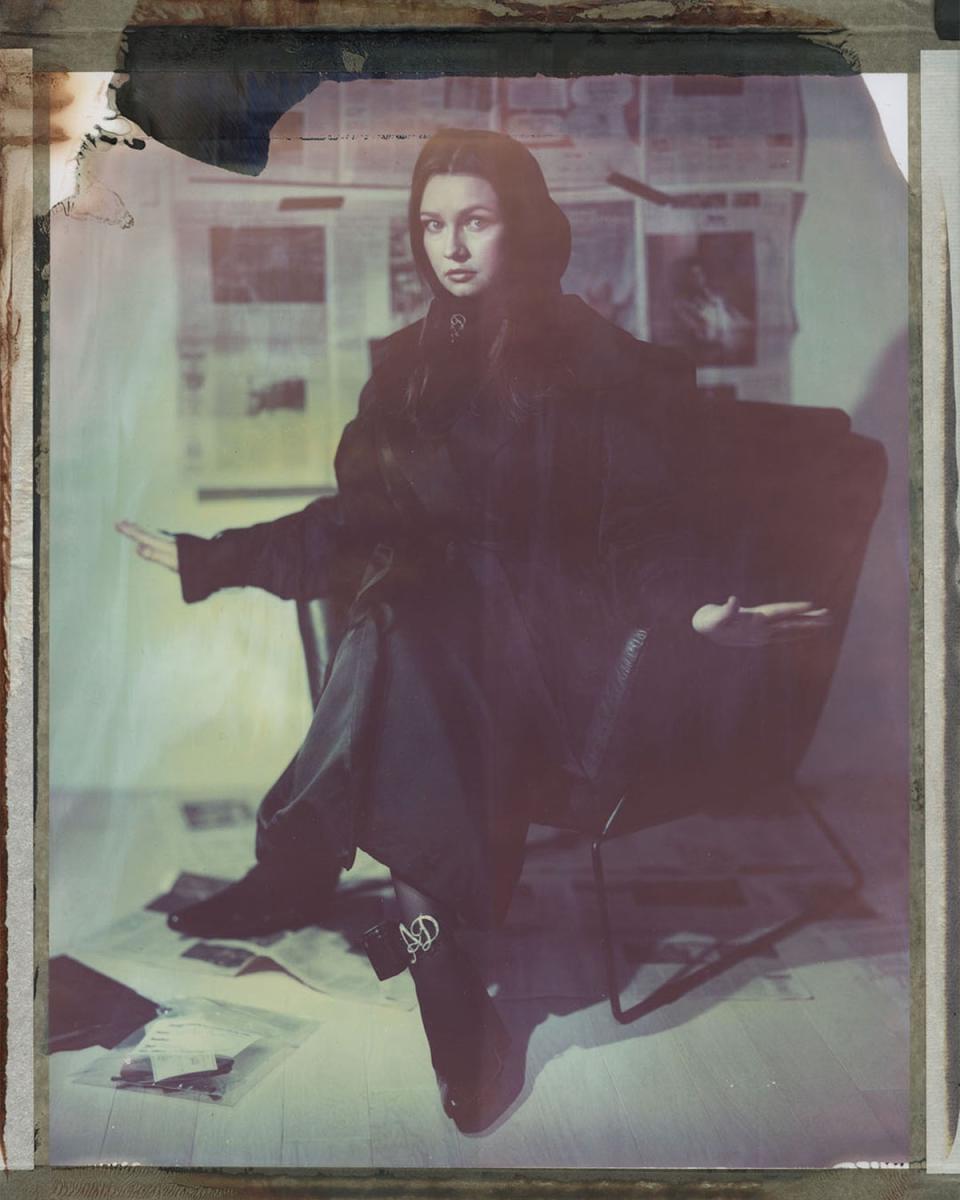
On her 30th birthday, ‘the girls’ who were also being held at the immigration centre made her bean burgers and cheesecake, ‘although I’m not a cake person’. There was no alcohol and anyway, ‘I am not a drinker any more, it makes me depressed the next day. You slow down after 30. Back in the day I thought I was wealthy and well-travelled but in reality I was surrounded by the same type of person: people who go to fashion shows and see art.’
Eventually, she would like to start dating and one day have children. ‘Dating will be something new to navigate because strangers assume you are this caricature.’ What sort of man can she see herself with, someone with money? ‘Definitely.’ She likes to read books about entrepreneurs and has just finished The Man Who Owns the News, by Michael Wolff, about Rupert Murdoch. ‘He just got divorced, right?’ she says. I confirm he is newly single. ‘Well he won’t be able to climb up five flights of stairs to get to this apartment,’ she laughs. ‘He’ll have a heart attack.’
Does she miss her old life? ‘I travelled,’ she says. ‘I saw a lot of great art. But hopefully that was not the highlight of my life. I haven’t vanished into this apartment. I was young and I did a crime. I’m grateful to get a second chance and I hope people want to hear my side of the story.’
Photography: Cameron Postforoosh
Make-up Artist: Olivia Barad
Hair Stylist: Junya Nakashima

 Yahoo Lifestyle
Yahoo Lifestyle 
